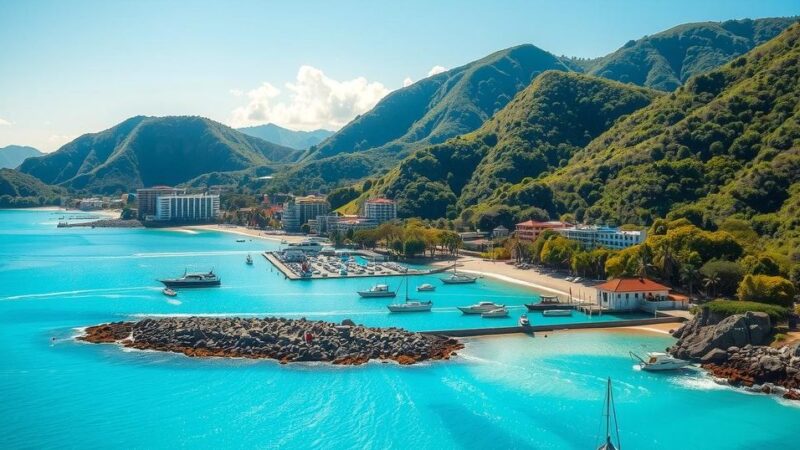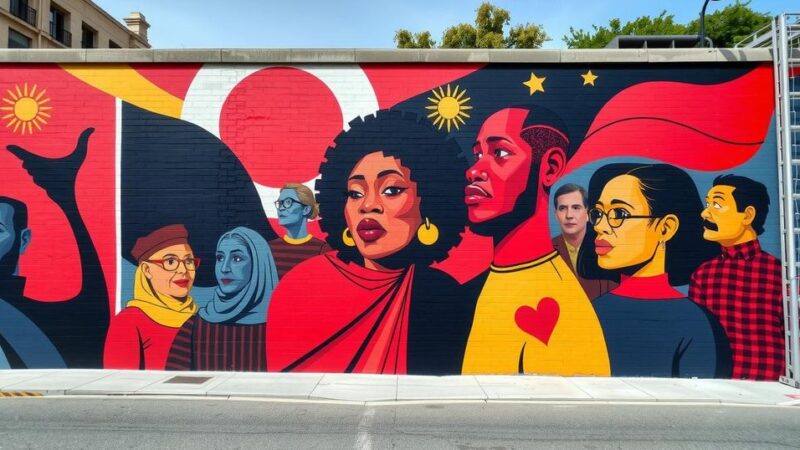Gian Paolo Daguer, known as the “Lord of the Fruit,” is dedicated to saving endangered native Colombian fruits through social media. His initiatives highlight the importance of lesser-known fruits like lucuma and churumbelo, which face threats from deforestation and homogenized diets. Collaborating with biologists and chefs, he promotes biodiversity awareness, emphasizing the need for replanting to preserve Colombia’s rich flora.
In Colombia, Gian Paolo Daguer, renowned as the “Lord of the Fruit,” utilizes social media to promote the flavors and benefits of rare native fruits, seeking to prevent their extinction. This 47-year-old environmental engineer passionately introduces fruits like the lucuma, which is compared to a small coconut with a strong caramel-like taste. Despite its appealing qualities, the lucuma is overshadowed by more popular fruits such as mango and papaya, resulting in the decline of lesser-known native species.
Carolina Castellanos, a biologist from the Humboldt Institute, emphasizes the urgency of this matter, stating, “As our diet becomes more homogenized, we all eat the same thing all over the world, so these (native) species are taking a back seat.” Additionally, the churumbelo, a sweet and refreshing berry from Boyaca, faces threats from agricultural and mining activities.
A study reinforces the importance of Daguer’s mission, revealing that approximately one in ten native edible plant species in Colombia is endangered. The country suffered notable deforestation in 2024, further exacerbating this issue as land is cleared for agriculture and coca production.
In response to the decline of rare fruits, Daguer has cultivated a community of over 108,000 followers who receive fruit seeds via postal service to grow in their gardens. His initiative fosters collaborative learning about lesser-known fruits through platforms such as WhatsApp, allowing knowledge sharing among biologists, farmers, and chefs.
Chef Antonuela Ariza contributes to Daguer’s efforts by incorporating rare fruits like camu-camu in her restaurant, highlighting the significance of consumer awareness in preserving biodiversity. She states, “What we don’t eat is lost,” underscoring the role of culinary practices in species conservation.
Daguer’s dedication aims to prove that thoughtful efforts and replanting can rehabilitate ecosystems. He warns against the destructive tendencies toward nature, advocating for a proactive approach to recovery. His work directly contributes to cataloging previously undocumented species like the quinguejo, further underscoring the urgency of preserving Colombia’s rich biodiversity.
Gian Paolo Daguer, the “Lord of the Fruit,” plays a crucial role in advocating for Colombia’s endangered native fruits through social media and community engagement. Despite the overshadowing presence of popular fruits, Daguer’s work emphasizes the need for awareness and preservation of lesser-known species. With the support of biologists and chefs like Antonuela Ariza, efforts are being made to inspire conservation and celebration of biodiversity, underscoring the importance of these fruits in both cultural and environmental contexts.
Original Source: www.communitynewspapergroup.com






